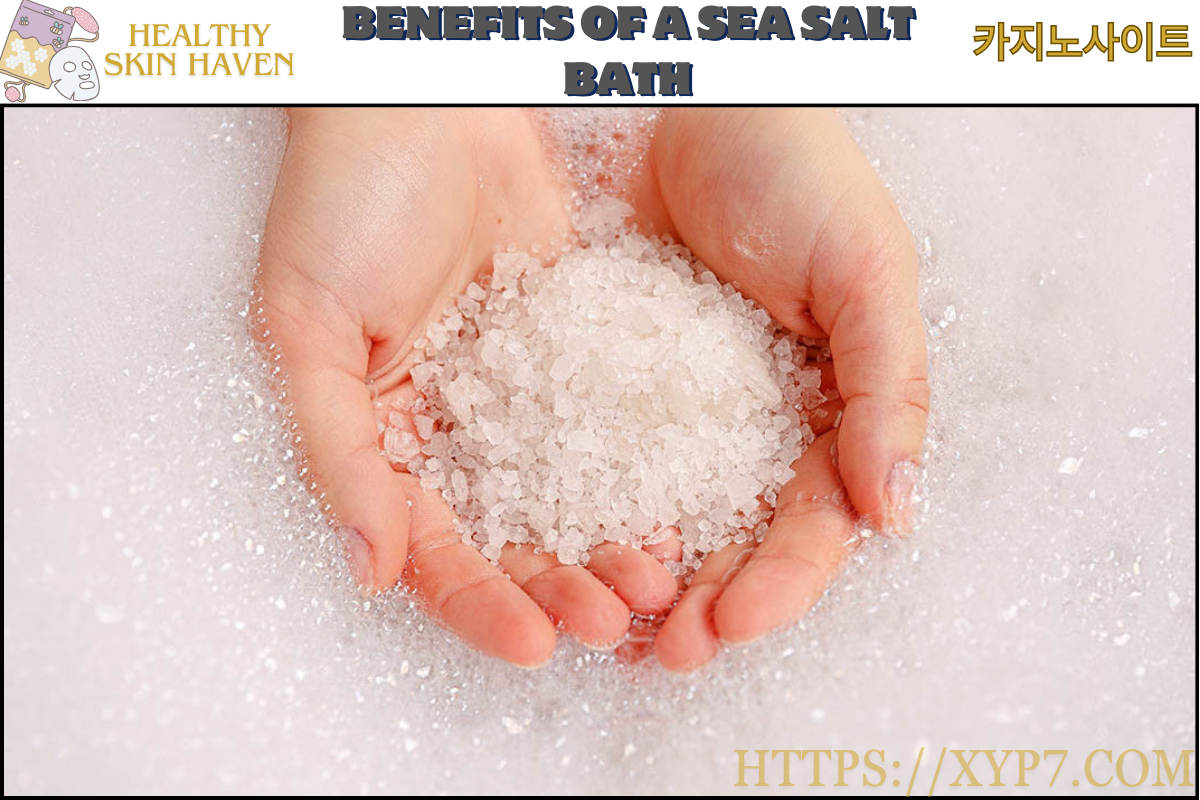Benefits of a Sea Salt Bath. You might want to experiment with adding a small amount of salt to your nightly baths to give them a fresh look.
Baths with sea salt are well known for their therapeutic and healing qualities, as well as for relieving stress and improving general health.
However, before you open the faucet and dive right in, consider this professional advice:
- varieties of sea salt
- advantages
- safety measures
- how to take a bath with sea salt
RELATED: Handmade Recipes and Ready-Made Lip Exfoliation Techniques

Sea salt: what is it?
One kind of salt that is produced when seawater evaporates is called sea salt. Sea salt differs from table salt in terms of taste, texture, and processing.
Since sea salt is obtained directly from the evaporation of seawater, it is usually not processed or only slightly processed, according to the American Heart Association Trusted Source.
Sea salt contains a variety of trace minerals due to its minimal processing, including:
- magnesium
- calcium
- zinc
- iron
- potassium
Table salt is processed to give it a fine texture because it is used in recipes and on food. You lose the minerals found in sea salt when this occurs.
varieties of sea salt
Sea salts come in a wide variety on the market.
Dead Sea salt is obtained straight from the Dead Sea and is available in several grains, such as:
- fine
- coarse
- extra coarse
Certain products also have fragrances like:
- lavender
- vanilla
- rosemary
Another well-known brand of sea salts is Westlab, which offers:
- Dead Sea salt
- Epsom bathing salt
- Himalayan bathing salt
- magnesium flakes
According to the company’s website, it only sources the best real Dead Sea salt, which is naturally high in:
- magnesium
- calcium
- potassium
The location of a sea salt’s origin can affect the health benefits it offers, claims Westlab.
For instance, Dead Sea salt is reputed to be of the greatest quality and ideal for use in therapeutic applications like:
- relaxation
- easing sore muscles
- providing relief for certain skin conditions
In culinary contexts, regular sea salt derived from ocean water is most frequently utilized.
Benefits of a sea salt bath
You might want to think about having a sea salt bath as a means of treating irritated skin, relieving achy muscles, and relieving stress.
Although taking a bath is a great way to treat yourself after a demanding day, adding sea salt is supposed to enhance the health benefits to your skin, muscles, and joints.
Beneficial for rheumatic diseases
Sea salt baths help treat rheumatic diseases such as the following, per a systematic review published in the journal Seminars in Arthritis and Rheumatism.
- inflammatory arthritis
- psoriatic arthritis
- spondylitis with ankylosing
- osteoarthritis in the knee
Beneficial to your skin
The biggest organ in your body, your skin, will also appreciate the pampering that a sea salt bath will provide.
“Those with psoriasis, eczema, and other dry skin conditions are benefiting from sea salt baths recommended by board-certified dermatologists at Spring Street Dermatology,” says Dr. Sapna Palep.
This is not surprising, especially because bathing in sea salt can help reduce the symptoms of some skin conditions.
The annoying itching associated with psoriasis can be reduced and scales can be eliminated with salt baths, according to board-certified dermatopathologist Dr. Gretchen Frieling.
She also mentions the possibility of sea salts being beneficial for those with atopic dermatitis and acne.
Eases sore muscles and increases blood flow
There are alleged additional advantages of having a sea salt bath, such as:
- promoting blood flow
- relieving spasms in the muscles
- aiding in the reduction of joint stiffness
- relieving sore, overworked feet and legs 카지노사이트
